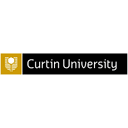Understanding the mechanisms behind exercise and physical activity reveals how regular movement optimizes health outcomes and enhances overall well-being.
Understanding the mechanisms behind exercise and physical activity reveals how regular movement optimizes health outcomes and enhances overall well-being.
This introductory course examines the scientific foundations of human physical fitness, its assessment, and strategies for improvement. It covers topics such as the benefits of fitness, starting a fitness journey, nutrition and rest, workplace fitness, overcoming challenges, and fitness for diverse populations. The course includes interactive learning tasks and uses wearable sensors/smartphones for fitness monitoring.
Instructors:
English
English
What you'll learn
Understand the basic constructs of human physical fitness
Explore the scientifically-based benefits of improving fitness
Develop strategies to begin and maintain a fitness journey
Understand the role of nutrition and rest in optimizing fitness
Examine the integration of fitness into work, sport, and everyday life
Identify and overcome common barriers to improving fitness
Skills you'll gain
This course includes:
PreRecorded video
Graded assignments, exams
Access on Mobile, Tablet, Desktop
Limited Access access
Shareable certificate
Closed caption
Get a Completion Certificate
Share your certificate with prospective employers and your professional network on LinkedIn.
Created by
Provided by

Top companies offer this course to their employees
Top companies provide this course to enhance their employees' skills, ensuring they excel in handling complex projects and drive organizational success.





There are 7 modules in this course
This course provides a comprehensive overview of the science behind human physical fitness. It explores the construct of fitness, its scientifically-based benefits, and practical strategies for improving and maintaining fitness. Key topics include starting a fitness journey, optimizing fitness through nutrition and rest, incorporating fitness into daily life, overcoming challenges to fitness, and adapting fitness strategies for diverse populations including children, remote communities, people with disabilities, and older adults. The course emphasizes an inclusive approach to fitness and includes interactive learning tasks such as measuring heart rate, perceived exertion, and using wearable sensors or smartphones for fitness monitoring and motivation.
Why Fitness?
Module 1
Get Me Off the Couch: Starting the journey of fitness
Module 2
Fuelling Fitness: Optimising and maintaining fitness
Module 3
Being Fit for Work, Sport and Everyday Life
Module 4
When the Going Gets Tough: Challenges to fitness
Module 5
Fitness for Everyone
Module 6
Course Summary
Module 7
Fee Structure
Instructors

1 Course
Sports Science Professor Specializing in Human Performance Optimization
Dr. Kevin Netto is a distinguished Professor of Sports Science at Curtin University, renowned for his innovative research on physical human performance in challenging environments. His work focuses on optimizing movement and skill in both sporting and occupational tasks, emphasizing applied and translational research that extends beyond traditional laboratory settings. Dr. Netto's expertise has earned him multiple research engagement awards at Curtin, and he has significantly contributed to public understanding of health and fitness through a weekly radio show and appearances on national television. As the instructor of "The Science of Fitness" course at Curtin, he combines academic rigor with practical insights, reflecting his commitment to bridging the gap between theoretical knowledge and real-world applications. Dr. Netto's research contributions, including work on inertial measurement units for cricket fast bowling and validation of new technologies for sports performance analysis, demonstrate his interdisciplinary approach to sports science. His career exemplifies the integration of cutting-edge research with practical applications and public engagement in the field of human performance optimization.

1 Course
Cardiovascular Physiologist and Health Innovation Researcher at Curtin University
Dr. Luke Haseler is a Professor in the Curtin School of Allied Health and the Program Lead for Cardiovascular Physiology in the Curtin Health Innovation Research Institute (CHIRI) at Curtin University. His research expertise spans a wide range of physiological studies, from molecular biology of cardioprotective effects of exercise using animal models to advanced imaging techniques for non-invasive assessment of muscle and cardiac processes in humans. Dr. Haseler's work combines fundamental physiological research with cutting-edge technology, including the recent application of machine learning techniques to predict patient survival in intensive care settings. His diverse research background allows him to bridge the gap between basic science and clinical applications. At Curtin University, Dr. Haseler contributes to the education of future health professionals by teaching "The Science of Fitness" course, where he likely integrates his extensive knowledge of cardiovascular physiology and exercise science to provide students with a comprehensive understanding of human performance and health.
Testimonials
Testimonials and success stories are a testament to the quality of this program and its impact on your career and learning journey. Be the first to help others make an informed decision by sharing your review of the course.
Frequently asked questions
Below are some of the most commonly asked questions about this course. We aim to provide clear and concise answers to help you better understand the course content, structure, and any other relevant information. If you have any additional questions or if your question is not listed here, please don't hesitate to reach out to our support team for further assistance.



